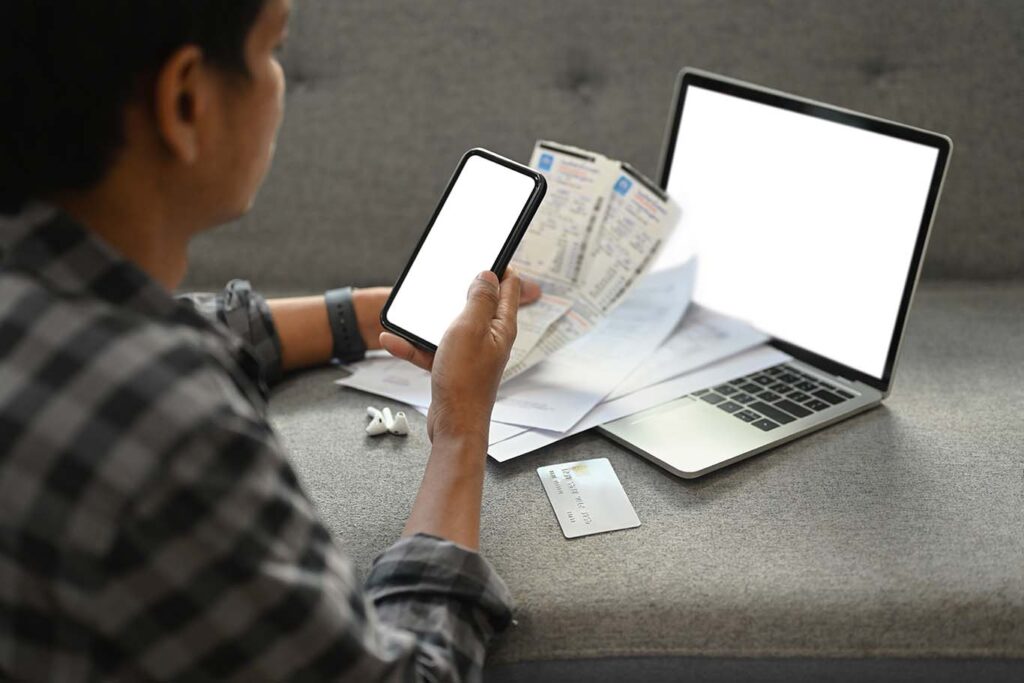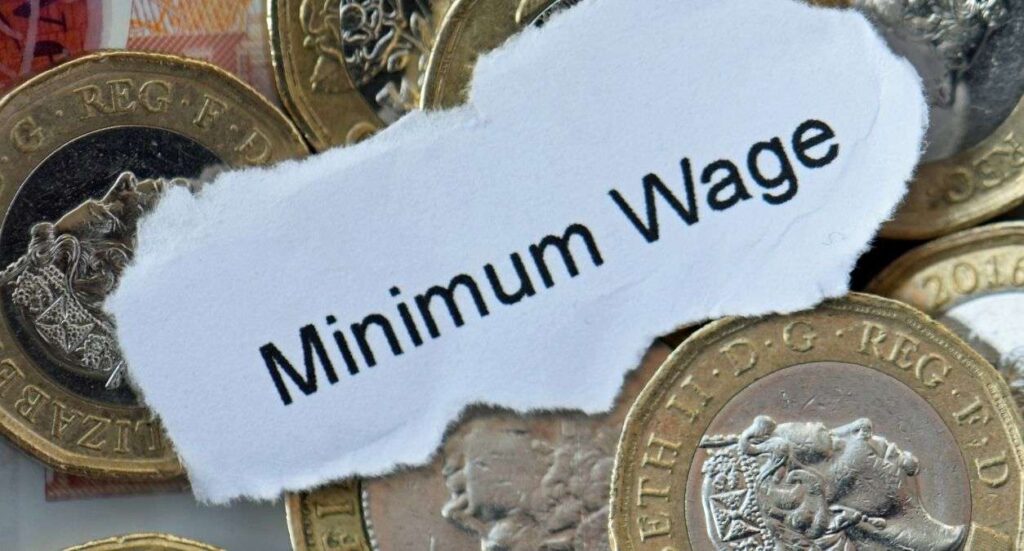The tax landscape is changing, and if you’re a small business owner, sole trader or landlord in the UK, now is the time to start paying attention to Making Tax Digital (MTD). From April 2026, a major shift is coming for those who file Income Tax through Self-Assessment (ITSA), requiring them to keep digital records and submit tax updates more frequently using approved software.
We’re all about helping you avoid losing money, whether that’s through the right insurance cover or by staying ahead of costly regulatory changes. MTD is one of those changes that can easily slip under the radar, until the penalties hit. While over 1.4 million VAT-registered businesses are already using MTD, millions of sole traders and landlords still haven’t signed up for the Income Tax version, and take-up of the government’s pilot scheme remains low. That means many could end up scrambling to comply at the last minute, or worse, face avoidable fines.
By getting informed now and making a few simple changes, you can avoid stress and unnecessary costs down the line. In this guide, we’ll walk you through what’s changing, who it affects, and the practical steps you can take to prepare in plenty of time.
What is Making Tax Digital (MTD)?

Making Tax Digital is a government initiative from HM Revenue & Customs (HMRC), designed to make tax reporting more efficient and accurate. The idea is simple: get rid of paper records and manual tax returns and move towards digital systems that help reduce errors and improve compliance.
MTD has already rolled out for VAT-registered businesses, and next up are those who file Income Tax through Self-Assessment.
What will be different under MTD for income tax?
Here’s what’s changing under MTD for Income Tax:
Quarterly updates
Instead of one tax return per year, you’ll need to submit updates to HMRC every three months, summarising your business income and expenses.
End of Period Statement (EOPS)
After the end of the tax year, you’ll confirm your income and make any necessary accounting adjustments.
Final Declaration
This replaces your Self-Assessment return and confirms your total taxable income, including anything outside of your business (like dividends or savings interest).
Digital record-keeping
You’ll need to keep digital records of your income and expenses using MTD-compatible software.
Who does MTD apply to

It applies to you if:
- You’re self-employed or a landlord, and
- Your combined business and/or property income is more than £50,000 per year from April 2026, or
- More than £30,000 per year from April 2027.
Who may be exempt?
If your income is under £30,000, you won’t be required to use MTD (for now), but you can opt in voluntarily.
You might be exempt if you can’t use digital tools due to disability, age, remote location, or other valid reasons.
To be officially exempt, you must apply to HMRC with supporting evidence.
When is the deadline?
The MTD rollout for Income Tax is happening in stages:
- April 2026: MTD becomes mandatory for self-employed individuals and landlords with income over £50,000.
- April 2027: MTD expands to those earning over £30,000.
HMRC is encouraging businesses to start preparing now—or even sign up early—so the switch is smooth and stress-free.
What are the penalties for missing the deadline?
HMRC is introducing a points-based penalty system under MTD:
- You’ll get one penalty point each time you miss a submission deadline.
- Once you hit a certain threshold (usually 4 points), you’ll receive a £200 penalty.
- Penalty points expire after 2 years, as long as you stay compliant.
- Late payment interest will also apply if you don’t pay your tax on time.
So, missing deadlines under MTD could lead to frequent penalties, not just once a year.
How to prepare for the MTD changes

Here’s a step-by-step guide to get you ready before the 2026 deadline:
1. Check if MTD Applies to You
Work out your gross income from self-employment and property. If it’s over £50,000, you’ll need to follow MTD from April 2026. If it’s over £30,000, you’re next in line in 2027.
2. Apply for an exemption (if you qualify)
If you’re not able to use digital tools for genuine reasons, apply to HMRC for an exemption as early as possible.
3. Choose Your MTD software
Find HMRC-approved software that suits your business. Make sure it offers:
- Easy-to-use dashboard
- Quarterly reporting tools
- Support for digital links
Speak to your accountant if you’re unsure which one to go with.
4. Start keeping digital records
If you’re still using notebooks or spreadsheets, it’s time to go digital. Start logging:
- Sales and income
- Business expenses
- Bank transactions
Most software lets you photograph receipts and upload them straight to your records.
5. Get familiar with quarterly updates
Instead of just one big return, you’ll send HMRC four quarterly updates, plus an EOPS and Final Declaration each year.
Your updates are due:
- End of July (for April–June)
- End of October (for July–Sept)
- End of January (for Oct–Dec)
- End of April (for Jan–March)
6. Set up digital links
Whether you use bank feeds, POS tools, or bridging software, make sure all systems talk to each other automatically.
7. Speak to an accountant or bookkeeper
If you already work with an accountant, they’re probably up to speed on MTD. If not, now’s a great time to get some advice to ensure you’re fully compliant.
Choosing MTD-compatible software
To comply with MTD, you’ll need to use software that can:
- Keep digital records.
- Submit quarterly updates and final declarations directly to HMRC.
- Maintain digital links (no manual copy-pasting between systems).
Popular options include:
- QuickBooks
- Xero
- FreeAgent
- Sage
- Zoho Books
- And several others listed on the HMRC website
Some providers offer free or low-cost versions for sole traders, especially those with simple accounts. If you already use accounting software, check with the provider whether it’s MTD-compatible.
What is a digital link—and is it necessary?
A digital link is an electronic connection between different software programs or tools where data flows without manual input. For example, importing bank transactions directly into your accounting software is a digital link.
Under MTD rules:
- Manually copying and pasting figures from one system to another is not compliant.
- Digital links ensure accuracy and help HMRC reduce errors and fraud.
If you use spreadsheets, they must be connected to bridging software that automatically pulls data into HMRC’s systems—again, no manual input allowed.
Final Thoughts
Making Tax Digital might sound like a hassle at first, but it can actually make your life easier in the long run. Real-time reporting means fewer surprises, better financial visibility, and more time to focus on your business—not your bookkeeping.
Start early, choose the right software, and don’t be afraid to ask for help. April 2026 might seem far off now, but it’ll be here before you know it.
Get Small Business Insurance from Protectivity

Affordable small business insurance from Protectivity
Protectivity offers affordable small business insurance suitable for sole traders, freelancers and other small business owners, specialising in a wide range of different activities.
Public liability is included with options to add extras such as employers’ liability and other specific industry add-ons. It’s a legal requirement to have employers’ liability insurance if you employ just one staff member, volunteer or apprentice with penalties for failing to comply.
Whether you’re looking for pet care business insurance, decorators insurance, catering insurance, crafters insurance, or another small business, explore the full list of small business insurance we provide today – or get in touch with our team to discuss your specific requirements.
*Disclaimer – This blog has been created as general information and should not be taken as advice. Make sure you have the correct level of insurance for your requirements and always review policy documentation. Information is factually accurate at the time of publishing but may have become out of date.
Last updated by

















